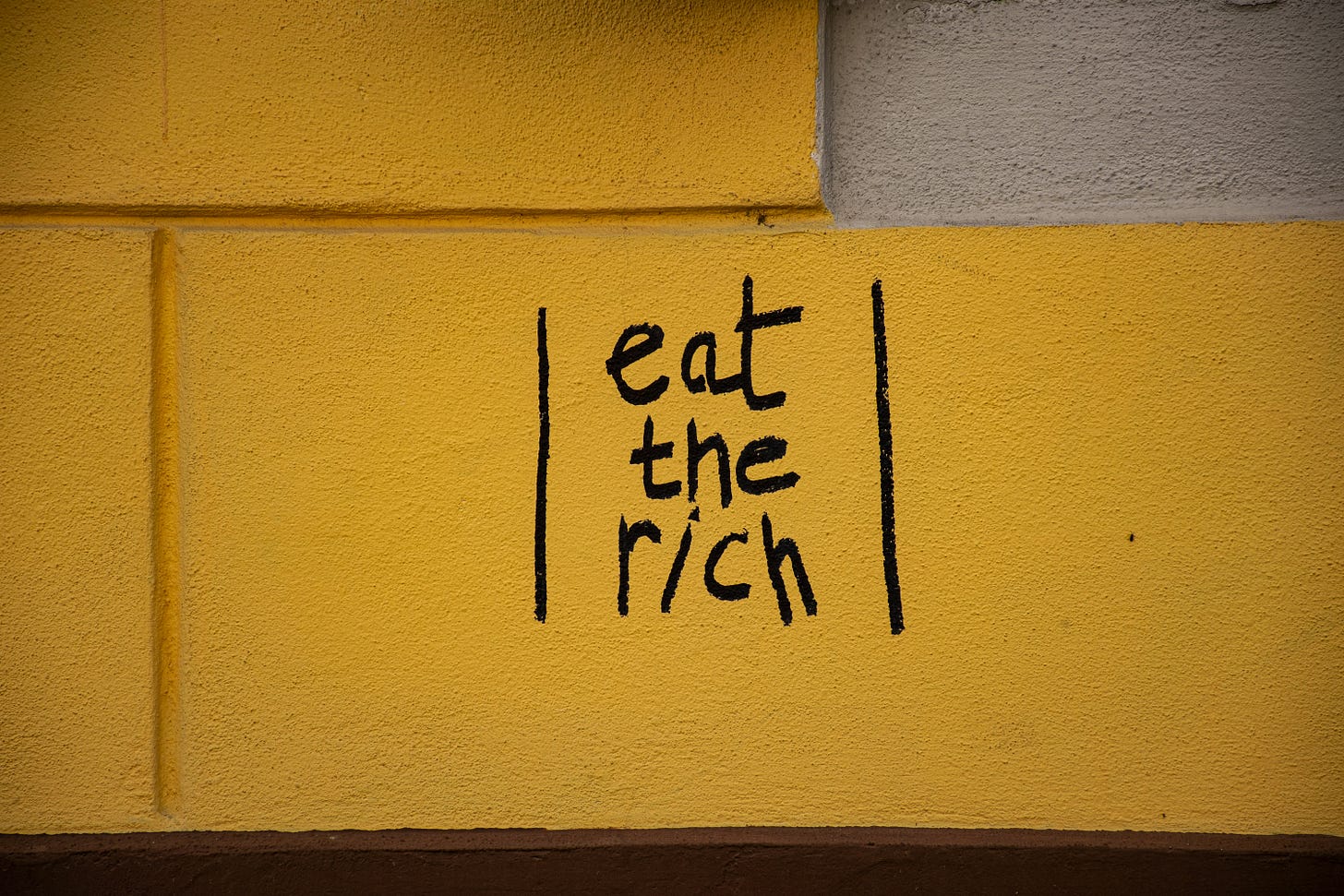Poor vs Broke and the Two Different Mindsets for Financial Struggle
Uncover the profound difference between 'poor' and 'broke' and how your mindset can either perpetuate financial struggle or pave the way to abundance
Do you know the difference between being poor and being broke?
People often use the terms "poor" and "broke" when discussing financial struggles, but these words represent vastly different experiences. Being poor is more than just a lack of funds; it is a deeply rooted belief that opportunities are permanently out of reach. This mindset can be incredibly damaging, leading to despair and a loss of motivation.
In contrast, being broke is simply a temporary financial setback. It's a situation that can be overcome with the right actions and mindset. Those who are broke often recognize that their situation is not permanent, and they actively seek solutions to improve their circumstances.
This distinction is crucial because it highlights the power of mindset in overcoming financial challenges. While being poor can feel like an insurmountable obstacle, being broke is simply a temporary hurdle that can be cleared with effort and resilience.
The Psychological Impact of Poverty
Poverty can have a profound psychological impact on individuals. When someone believes that they are poor, they may begin to internalize that belief. This can lead to feelings of shame, hopelessness, and despair.
These negative emotions can, in turn, affect mental health, making it difficult to break free from the cycle of poverty. The belief in being poor can become a self-fulfilling prophecy, limiting aspirations and preventing individuals from pursuing their dreams.
Temporary Setbacks: The Nature of Being Broke
Being broke, on the other hand, is a completely different experience. While it can be stressful and challenging, it's important to remember that it is not a permanent state. Those who are broke often recognize that their situation is temporary.
They understand that with hard work, dedication, and the right resources, they can overcome their financial challenges. This mindset is crucial for bouncing back from financial setbacks.
How This Mindset Affects BIPOC Communities
Unfortunately, BIPOC (Black, Indigenous, and People of Color) communities are disproportionately affected by poverty. This is due to a variety of systemic barriers that have been in place for generations.
Economic inequality, limited access to quality education, and discrimination all play a role in perpetuating the poverty mindset within these communities. The result is a cycle of poverty that is difficult to break.
Empowering BIPOC Entrepreneurs
To break this cycle, we need to empower BIPOC entrepreneurs. This means shifting the narrative from poverty to temporary financial setbacks. We need to provide these individuals with the tools and resources they need to succeed.
This includes financial education, mentorship programs, and access to business networks. By investing in BIPOC entrepreneurs, we can help create a more equitable society.
Financial Education: A Key to Success
Financial education is crucial for empowering BIPOC entrepreneurs. Many individuals lack basic financial literacy skills, such as budgeting, saving, and investing. By offering workshops and courses on these topics, we can help people develop the skills they need to manage their money effectively.
This, in turn, can lead to better financial decisions and a greater sense of control over one's financial future.
Mentorship Programs: Building a Supportive Network
Mentorship programs can also play a vital role in empowering BIPOC entrepreneurs. Connecting aspiring entrepreneurs with experienced mentors can provide valuable guidance and support. Mentors can share their knowledge, offer advice, and help entrepreneurs navigate the challenges of starting and running a business.
These relationships can be incredibly empowering, instilling confidence and providing a sense of community.
Access to Resources: Leveling the Playing Field
Access to resources is essential for any entrepreneur, but it can be particularly challenging for BIPOC individuals. Limited access to capital, business networks, and other resources can make it difficult to get a business off the ground.
By providing grants, loans, and access to business networks, we can help level the playing field and create opportunities for BIPOC entrepreneurs to thrive.
And In Conclusion …
Changing the narrative from being poor to being broke is a powerful step towards empowering individuals and communities. By understanding the difference between these two mindsets and addressing the unique challenges faced by BIPOC communities, we can create a more equitable society.
Let's work together to break down barriers, provide resources, and empower BIPOC entrepreneurs to achieve their dreams. Remember, financial setbacks are temporary, but the potential for success is limitless.
Random Thoughts
Kendrick Lamar is doing Drake dirty.
The Drake diss track “Not Like Us” is the song of the summer
Kendrick Lamar had a concert in Inglewood, California on Juneteenth. Lamar performed “Not Like Us” five times!!
A video of “Not Like Us” is currently being made into a video
This feud is far from over
.



I liked the article, especially that it highlighted foundational concepts like: the power of belief, the duality of existence, the impact of mindset, and the potential for transformation — all central themes in a metaphysical / spiritual understanding of the world.